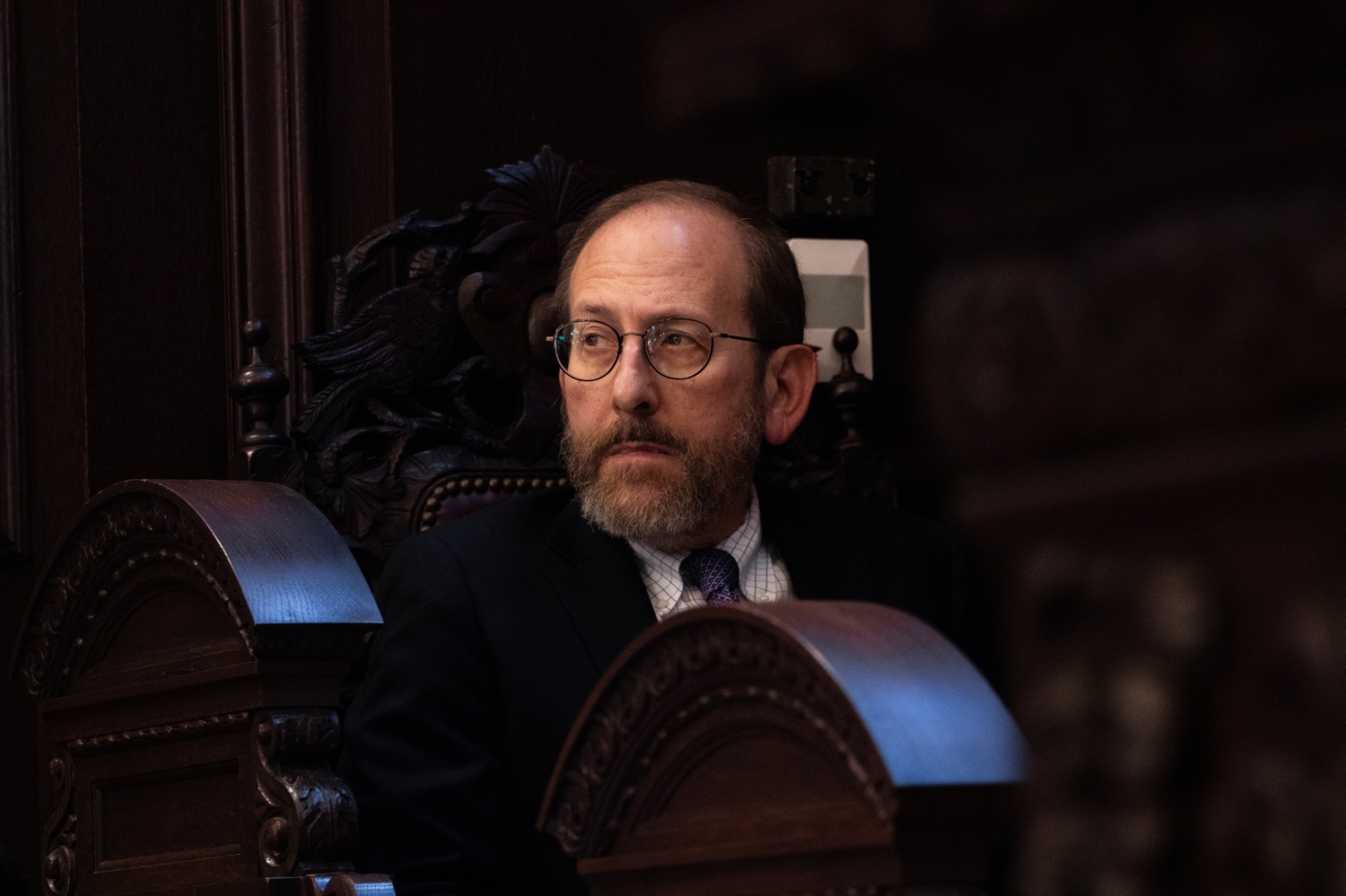
News
Summers Will Not Finish Semester of Teaching as Harvard Investigates Epstein Ties

News
Harvard College Students Report Favoring Divestment from Israel in HUA Survey

News
‘He Should Resign’: Harvard Undergrads Take Hard Line Against Summers Over Epstein Scandal

News
Harvard To Launch New Investigation Into Epstein’s Ties to Summers, Other University Affiliates

News
Harvard Students To Vote on Divestment From Israel in Inaugural HUA Election Survey
Could a Major Advertising Push Fix Harvard’s Image Problem?
Last week was Harvard’s first excellent press in at least a decade.
After the University announced it would defy the Trump administration’s outrageous demands, posts on X fawned over Harvard’s press team, the Times ran several top-of-site stories about the University’s bold resistance, and New York Magazine suggested that University President Alan M. Garber ’76 could be higher ed’s “wartime leader.”
Harvard has a golden opportunity right now to become an institution people love again and make this assault much more painful for the Trump administration. To take advantage of it, the University needs to think and invest big in getting its story to the American people. Harvard should be an institution that advertises, aggressively. It always should have been.
Though responsible for some of the greatest advances in American prosperity over the past century, elite universities hardly advertise their work to claim credit in the conventional corporate sense. Whether because full-fledged marketing campaigns feel too profane for our staid old institutions of learning, because it’s expensive, or simply because there is felt to be no major need for it, you will not find glossy ads online or on TV touting just how much Harvard does for the world.
Harvard’s relative silence about its immense achievements has been a hidden variable in the Republican smear campaign against higher education. Yes, liberal excesses in the academy, real and imagined, provided fodder for higher ed’s critics. But low public awareness of elite universities’ contributions resulted in too few thinking, “well, but they do a lot of good.”
Last week bucked the trend. Harvard made a bold decision, announced it with an excellent letter and some glossy web pages about the importance of its research, and earned loads of positive press mentions. That so many people dissatisfied with President Donald Trump have been waiting for America’s institutions to stand up to him super-charged the story, making the University something of a media darling.
It’s a good start, but there remains much to do. Harvard very likely won some support on the left and in the center last week, but it must go further to make Trump’s assault politically painful and address the image problem that produced it. To do so, the University needs to adopt a much more active media posture than ever before.
An easy place to begin is Massachusetts Hall. Even as he’s been touted as higher ed’s wartime leader, Garber has not done an interview with the press since announcing Harvard’s defiance. That’s a mistake. In a media environment as fast-paced and fragmented as today’s, it helps for your campaign to have a face. The University has a fast-closing window to make Garber a spokesman for higher ed — it should take it.
More broadly, rather than focus on quietly lobbying in Washington, Harvard should spend big on advertising that reminds the public how much good it does.
The administration just froze billions of dollars dedicated to projects that could help cure cancers, eradicate diseases, and save our planet. Many of those projects have already worked miracles. Reporters will tell some of their stories, but eventually they’ll lose interest, and they mostly won’t go so far as to argue against the measures outright.
Harvard has much to gain by telling those stories itself. The University should spend big on digital and broadcast ads that feature the most impactful research done by affiliates in recent years and state clearly that recent and oncoming financial penalties will stop such progress. These ads should be careful to maintain a non-partisan tenor — for political and strategic reasons, we can’t be seen as out to get Trump — but they must make the dynamics of the situation crystal-clear and should perhaps be targeted to red or purple states.
Meanwhile, the University should continue trying to get the message out that it has stepped up academic rigor, cracked down on the more obvious examples of left-wing excess, and taken real action on antisemitism. (It wouldn’t hurt, for example, to point to Harvard Hillel’s recent statement opposing the Trump administration’s extreme measures.)
Such a campaign could deter the administration from stepping up its attacks by persuading critical swing voters of their foolhardiness and begin to rehab Harvard’s image with more skeptical Republicans. Over a decade, this strategy — better yet, a unified effort pooling the resources of peer universities and national organizations — could meaningfully address the PR problem that has made higher ed so vulnerable.
A major press push would be pricey, but it may be the best investment the University and higher education could make. If it could constrain further funding cuts or stave off an endowment tax, it would pay for itself many times over. In the long run, if Harvard could use this moment to begin a sustained rebrand into an institution people love again, it could avoid costly situations like this in the first place. Hundreds of millions in advertising could conceivably save billions in the war chest.
For universities, advertising is like insurance: You don’t need it until you do. If there was a time when it was fine for higher ed to help the world in stately silence — and the past decade inspires little confidence that there was — it has surely now passed. Harvard has to take its resistance viral.
Tommy Barone ’25, a former Crimson Editorial Chair, is a Social Studies concentrator in Currier House.
Want to keep up with breaking news? Subscribe to our email newsletter.

